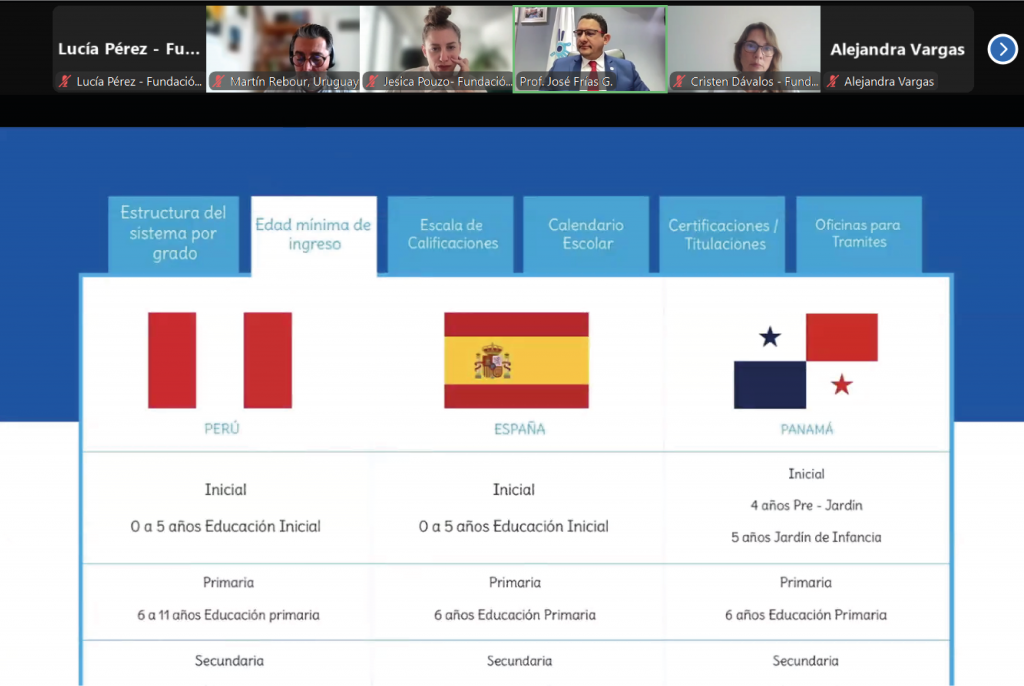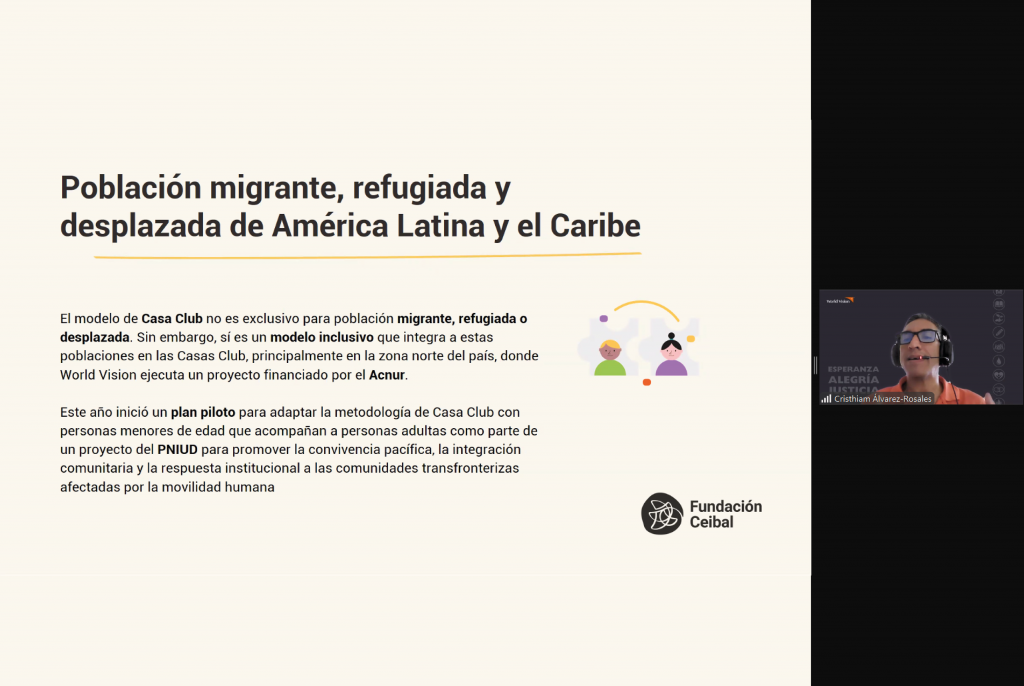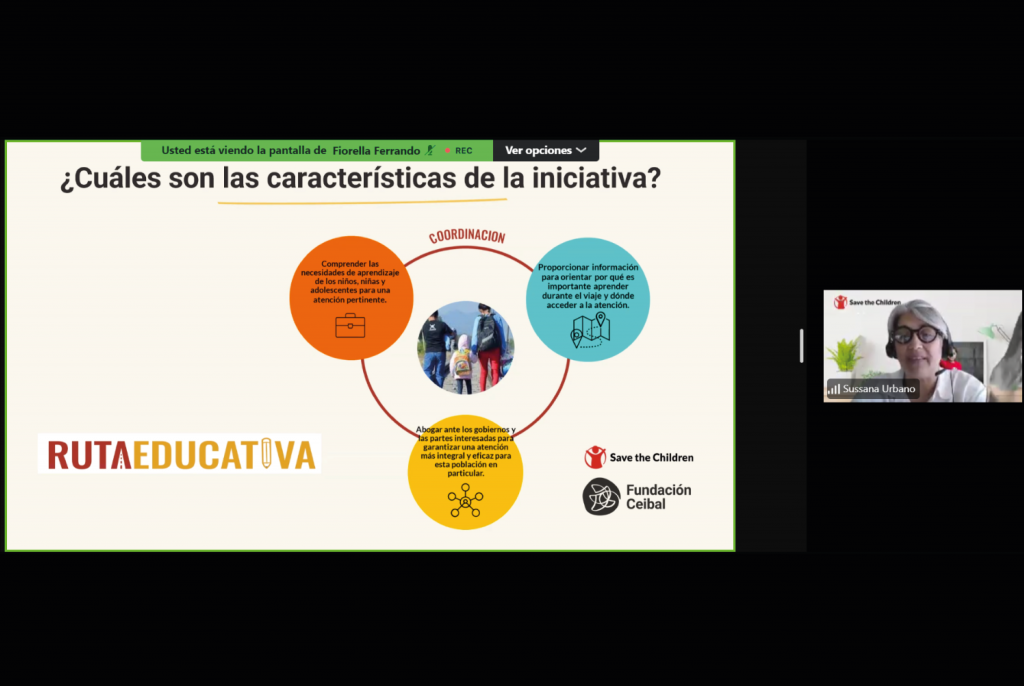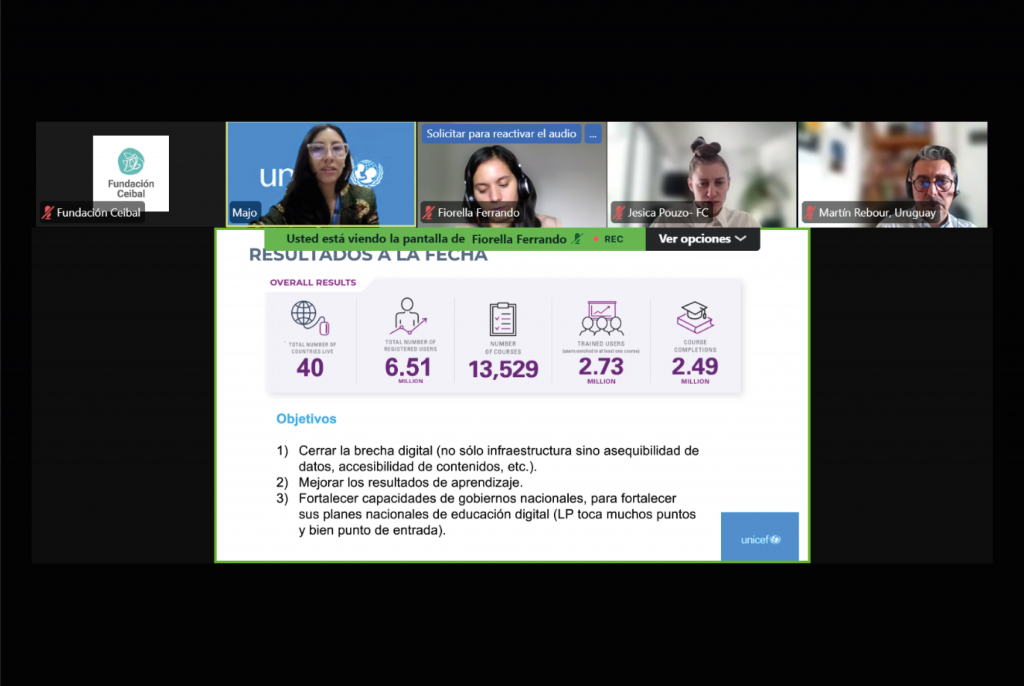News

Innovation and ICT: Transforming Education for Migrant and Refugee Children in Latin America and the Caribbean (LAC)
As part of the project “Exploring Opportunities for the Use of Digital Technologies in the Educational Inclusion of Refugees, Migrants, and Displaced Children in Latin America and the Caribbean,” led by the Ceibal Foundation with support from the International Development Research Centre (IDRC), the webinar “Connecting Futures: Innovation, Education, and ICT for New Generations on the move in Latin America and the Caribbean” was held on November 25-26. The event brought together various stakeholders, including international specialists, public policy officials, and representatives from non-governmental organizations, to discuss the challenges and opportunities of promoting educational inclusion for migrant, refugee, and displaced children in the region.
The opening session was led by Roberto Porzecanski, Director of the Ceibal Foundation, who emphasized that migration poses significant challenges related to socioeconomic integration and equitable access to education for people in mobility situations across the region. He described the event as a key milestone for the project and for the Foundation´s role as a facilitator and mobilizer of knowledge in Latin American and the Caribbean. Alejandra Vargas García, IDRC officer, and Martín Rebour, project leader, also participated in the session. They highlighted the importance of international cooperation, collaborative learning, and identifying innovative solutions to bridge gaps in political agendas and address educational barriers faced by this population.
The webinar featured presentations of notable initiatives from across the region, which served as the focal point of both working days. On the first day, two cases were highlighted: the Equivalency Table of the Andrés Bello Agreement and the Club Houses of World Vision Costa Rica. José Antonio Farías, Executive Secretary of the Andrés Bello Agreement, introduced the Equivalency Table, an innovative digital tool designed to ensure the recognition and equivalence of primary and secondary education among the 12 member countries of the agreement. This tool facilitates the educational integration of migrants and refugees by leveraging an active network of technical experts and advancements in digitization. As a replicable model, the Equivalency table demonstrates significant potential for promoting educational inclusion in contexts of mobility.
On the other hand, the Club Houses project was presented by Christiam Álvarez, Operations Manager of World Vision Costa Rica. This initiative focuses on fostering the development of psychosocial skills in vulnerable children and adolescents through socio-educational activities and e-learning platforms. The program´s primary objective is to create safe, protected, and inclusive environments that support holistic development of various skills, enabling participants to thrive despite their challenging circumstances.
The second session of the webinar highlighted two additional initiatives: the Educational Route by Save the Children and the Learning Passport by UNICEF. Sussana Urbano, Senior Technical Advisor for Education in Emergencies for Latin America and the Caribbean at Save the Children, introduced the Educational Route program. This initiative addresses the challenge children and adolescents face in continuing their education as they cross borders. The program focuses on reducing educational barriers for migrants and their families through three key components: assessing competencies and the providing tailored educational materials based on their skills, offering information on access to safe educational spaces during transit, and collecting data to enable effective, targeting interventions.
The Learning Passport project by UNICEF was presented by María José Velazquez, Education Specialist at UNICEF´s Regional Office for Latin America and the Caribbean, and Daniel Contreras, Head of Education at UNICEF Honduras. This initiative aims to ensure uninterrupted access to high-quality educational content through a digital platform designed to meet diverse learning needs. By offering adaptable and accessible resources, the Learning Passport supports educational continuity for children and adolescents in mobility and displacement contexts.
Through variou interactive sessions, the webinar facilitated exchanges on innovation, education, and ICT, with a focus on supporting new generations on the move. Participants identified key barriers that migrants, refugees, and displaced individuals face in accessing education. These obstacles included a lack of documentation, challenges in recognizing degrees and competencies, restrictive migration policies, and linguistic and cultural barriers, all of which hinder their ability to integrate into educational systems.
Attendees also agreed on the importance of improving connectivity in vulnerable areas, ensuring access to education during transit periods, and digitizing academic records to address the lack of of physical documentation.
As next steps, participants highlighted the need to establish clear success indicators, such as the number of migrant students achieving seamless integration into the educational systems of the destination country, equitable access to devices and the internet, measurable improvements in learning outcomes, and advancements in technological competencies among students.
Both sessions fostered meaningful reflection among international specialists, public policy officials, and representatives of non-governmental organizations. The discussions encouraged continued collaborative and coordinated efforts to scale initiatives that guarantee access to quality education for children and adolescents on the move.




